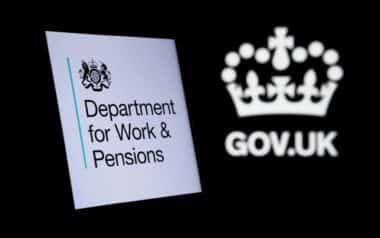The Department for Work and Pensions (DWP) has announced a new initiative aimed at reducing waiting times for musculoskeletal (MSK) treatments and helping people return to employment. The plan, part of the ‘Get Britain Working’ white paper, will see £3.5 million in funding distributed across 17 Integrated Care Boards (ICBs) in England, targeting regions with the longest NHS waiting lists for MSK conditions.
With over 1.1 million people currently receiving Personal Independence Payment (PIP) for MSK-related conditions, the government argues that faster treatment could improve mobility and reduce economic inactivity. The initiative is part of a broader effort to reform the welfare system, as the government seeks to reduce the number of people out of work due to long-term health conditions.
Why Are Musculoskeletal Conditions a Focus?
Musculoskeletal conditions—including arthritis, chronic back pain, and joint issues—are one of the leading causes of long-term sickness absence in the UK. According to government data, 646,000 people cite MSK conditions as their primary reason for not working, making it the second largest cause of economic inactivity after mental health conditions.
Waiting lists for MSK community services in England are the longest of all community care sectors, with 348,799 people awaiting treatment as of September 2024. The delays not only impact quality of life, but also affect employment prospects, as those suffering from MSK conditions may struggle with mobility, chronic pain, and physical limitations.
Minister for Employment, Alison McGovern MP, highlighted the importance of addressing these challenges, stating:
“For too long people locked out of work with health issues have been forgotten about and denied the support they need to get well and get working. It’s stifling our economy and preventing those eager to progress in life from unleashing their full potential. This multi-million-pound funding boost means musculoskeletal patients across the country will get the help they need, as we give clinical leaders the resources to innovate, get people off waiting lists, and get Britain working again.”
How Will the Funding Be Used?
The £3.5 million package will be distributed among 17 Integrated Care Boards (ICBs) across England, with each area receiving up to £300,000. The funding will be used to:
- Expand MSK community service capacity, reducing long NHS waiting times.
- Improve early detection and treatment, preventing conditions from worsening.
- Integrate healthcare and employment support, helping individuals return to work sooner.
The initiative will be delivered through NHS England’s ‘Getting it Right First Time’ (GIRFT) programme, which focuses on streamlining treatments and reducing inefficiencies.
Minister for Public Health and Prevention, Andrew Gwynne, stressed the need for early intervention, stating:
“With prevention, early detection and treatment, we know that the 17 million people with musculoskeletal issues in England could better manage their conditions, improving their quality of life and enabling them to rejoin the workforce. Through the Plan for Change, the government is taking decisive action to drive down waiting lists, improve treatment options and boost the economy.”
What Does This Mean for PIP Claimants?
As of October 2024, more than 1.1 million people in England and Wales receive PIP for MSK-related conditions, with payments of up to £737.20 per month depending on the severity of their condition. The government’s focus on treating MSK conditions more quickly raises questions about whether future welfare reforms could lead to changes in eligibility for PIP.
Deborah Alsina MBE, Chief Executive of Versus Arthritis, highlighted the importance of MSK services, stating:
“With over 20 million people living with musculoskeletal conditions, including 10 million with arthritis, Versus Arthritis understands the devastating impact these conditions can have on working lives. Arthritis can cause debilitating pain, joint stiffness, and prevent people from doing everyday tasks, with work sometimes made to feel an impossible challenge. MSK Community Services can be an invaluable resource for people with arthritis, and we are delighted to see the launch of this programme in dedicated sites across England, and in the future across the whole country.”
Will These Plans Affect Benefits?
While the current initiative focuses on healthcare improvements, it forms part of a broader strategy to encourage more people with long-term conditions to return to work. The government has already announced plans to review eligibility for sickness-related benefits, including PIP and Employment and Support Allowance (ESA).
A consultation on proposed changes to the welfare system is expected to be published in the spring of 2025, which could outline new criteria for disability benefits. Some campaigners worry that faster access to treatment could be used as justification to reassess PIP claimants, potentially leading to changes in eligibility.
What Happens Next?
The MSK Community Delivery Programme is set to begin implementation in selected areas across England, with the potential for expansion if it proves successful. Meanwhile, discussions around disability benefits and employment reforms will continue as the government finalises its long-term welfare strategy.
For now, those affected by musculoskeletal conditions will be watching closely to see how these changes impact access to healthcare, financial support, and employment opportunities.









